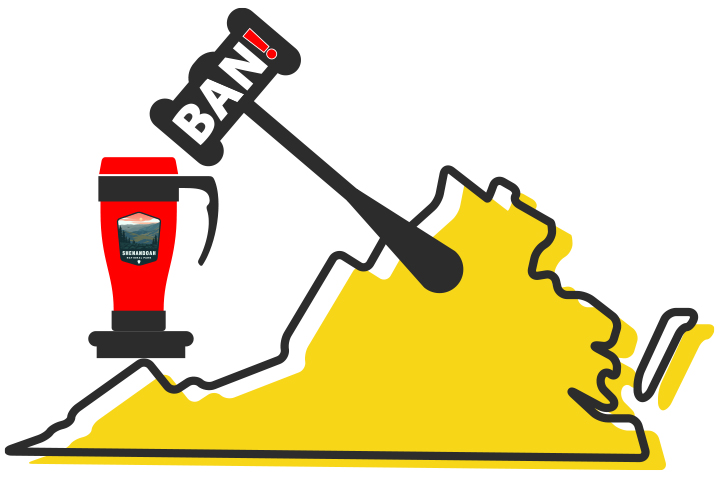February 01, 2023
Virginia Considers Prohibiting State Agencies From Buying Branded Products
Promo products leaders are encouraging industry members in Virginia to take action against the legislation that’s now under consideration.
The Virginia Department of Wildlife Resources is worried – and the reason why is of pressing importance to the promotional products industry.
Legislators in Virginia are considering a bill that would effectively prohibit state agencies in the commonwealth from buying promo products/branded merchandise.

Introduced earlier this month by Delegate Amanda Batten of Virginia’s 96th district, House Bill 1913 would in particular ban state agencies from entering any contract for the purchase of goods that are branded with a state agency’s name, logo, insignia or other designation – and that are being purchased for the purpose of advertising, marketing or promotion.
A hearing on the bill was planned before the Virginia House of Delegates General Laws Subcommittee #4 on Tuesday, Jan. 31, but the committee voted to table discussion to a future date. The bill defines state agencies as any authority, board, department, instrumentality, institution, agency or other unit of state government that’s subject to the Virginia Public Procurement Act (VPPA). The bill exempts all public institutions of higher education, counties, cities, towns and local or regional governmental authorities from its provisions.
If enacted, the ban would hurt the Department of Wildlife Resources (DWR), causing a loss in revenue, the agency said in an impact statement to legislators.
In fiscal year 2022, for instance, DRW generated $1,460,218 collectively from the sale of agency-branded marketing materials, including the Virginia Wildlife Magazine Calendar, license collector cards, “Restore the Wild” permits and conservation license plates.
“DWR relies heavily on brand identity and marketing to generate operating funds,” the agency says. “Elimination of this mechanism for promoting the agency, its mission and Virginia’s outdoor experiences will have substantial impacts on agency revenue generation (including the ability to match Federal and other grants), diverse tourism, partnership and sponsorship opportunities, and economic activity related to outdoor recreation.”
Similar impacts could well be felt at other state agencies that rely on merch to help advance their missions and generate revenue. It’s a key reason why promo products industry leaders are encouraging members, especially those in Virginia, to contact commonwealth legislators and speak out against the proposed ban.
“This proposal is uninformed, and we’ll do whatever we can to continue educating lawmakers on the proven affordability and return on investment of our industry’s products, which have been proven time and again by ASI’s research,” said Timothy M. Andrews, president and chief executive officer of ASI, the largest membership organization and technology provider in the $23.2 billion promotional products industry, serving a network of 25,000 suppliers, distributors and decorators of logoed promotional products in 53 countries.
ASI encourages promotional products professionals in Virginia to contact their state legislators to express opposition to the bill. Find your legislator here.
“Further,” Andrews continued, “promotional products are ideal and cost-effective ways for a government agency to represent themselves to the public, deliver important messages and connect with citizens and constituents. There isn’t a political campaign that doesn’t use banners, writing instruments, pins, signs – because they work. Why shouldn’t a government agency use those same tools to communicate with citizens about important programs, guide behaviors and educate people about services and opportunities offered by government agencies at all levels? Promotional products allow smaller companies, schools, non-profits as well as our government to spread the word through an effective advertising medium, extending their reach just like major brands – without spending a ton of money. ASI will continue to beat the drum for promotional products. But it’s up to all of us in the industry to spread the word as well, wherever and whenever we can.”
Promotional Products Association International (PPAI), an industry trade group, has crafted a letter that expresses opposition to the proposed legislation. It emphasizes the essential role promo plays in helping state agencies in their missions, while also supporting “responsible spending and the effective use of promotional products to promote critical government programs.”
“As the number-one most effective advertising method for generating interest and driving recipients to take action, promotional products must not be eliminated from the various state agencies’ toolboxes to convey important messages to Virginia citizens,” the letter states in part.
The letter continues: “Promotional products and the messages they carry help state, county and local governments keep their citizens informed and well-prepared by providing essential public service information in a timely and reliable manner.”